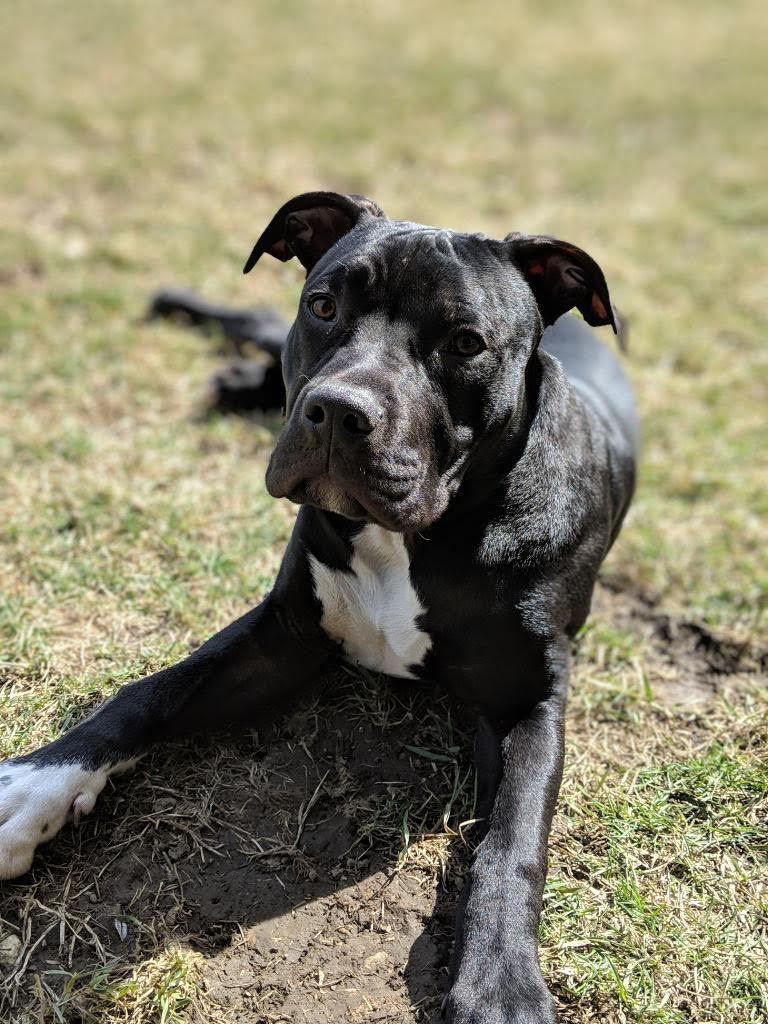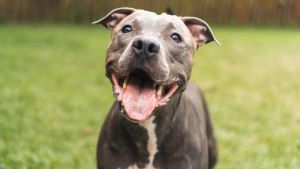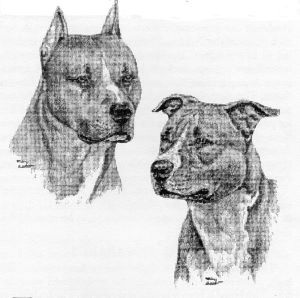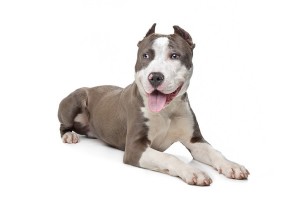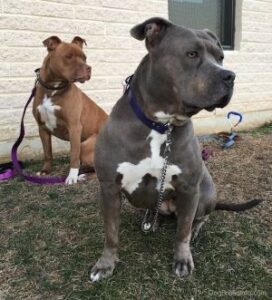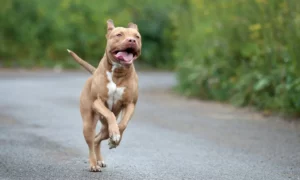The American Pit Bull Terrier is a breed known for its strength, loyalty, and agility. This versatile dog has gained popularity as a companion, working, and service dog. When deciding to bring home an American Pit Bull Terrier, it is essential to understand their specific needs regarding history, temperament, health, training, and exercise. In this comprehensive guide, we will delve into these topics to provide valuable insights and practical tips to keep your American Pit Bull Terrier happy, healthy, and thriving.
History
The history of the American Pit Bull Terrier is rich and complex, reflecting its evolution from a working dog to a beloved companion. Understanding the breed's history provides valuable insights into its temperament, traits, and popularity. So let's delve into the history of the American Pit Bull Terrier.
Origins and Ancestry:
One can trace the roots of the American Pit Bull Terrier back to the British Isles in the 18th and 19th centuries. They are believed to have descended from a mix of bulldog and terrier breeds. These dogs were initially developed for the sport of bull-baiting. This cruel practice involved pitting dogs against bulls or other large animals.
However, as legislation began to prohibit blood sports, enthusiasts shifted their focus to dog fighting. To create a more agile and formidable fighter, breeders selectively crossed bulldogs with terriers, resulting in a breed known for its strength, tenacity, and gameness—the ability to remain determined and courageous in the face of adversity.
The Development of the American Pit Bull Terrier in America:
As the name suggests, the American Pit Bull Terrier gained prominence in the United States. The breed was brought to American shores by immigrants, where it continued to be used for various purposes. During the 19th century, the American Pit Bull Terrier played a crucial role in farm work, herding livestock, and as a guard dog. They were also employed in hunting, catching wild boars, and other game.
The American Pit Bull Terrier's reputation as a loyal and hardworking dog began to emerge. Their versatility and willingness to please made them popular among farmers, ranchers, and even families. In addition, they were known for their protective nature, making them excellent guardians of property and loved ones.
Pop Culture Influence:
The American Pit Bull Terrier became an iconic symbol of American culture, representing strength, courage, and loyalty. They were widely featured in advertising campaigns, on posters, and in movies, further solidifying their image in the public's mind. In addition, famous individuals such as Helen Keller and Theodore Roosevelt owned and admired American Pit Bull Terriers, contributing to their positive reputation.
Unfortunately, the breed also garnered negative attention due to its association with dog fighting. Illegal dog fighting rings and irresponsible owners perpetuated the misconception that American Pit Bull Terriers were all inherently aggressive or dangerous. It is crucial to note that these aggressive behaviors are not inherent traits destined to be present in every dog of the breed. Part of the problem comes from owners wanting a mean dog and turning the dogs into that to perpetuate the stereotype. The other reason is that in the event they do attack, they tend to inflict more damage than most other breeds.
Modern-Day Challenges and Recognition:
In recent years, the American Pit Bull Terrier has faced challenges due to breed-specific legislation and negative media portrayal. Some jurisdictions have enacted laws that target American Pit Bull Terriers and other breeds, sometimes based on stereotypes or a reaction to one event rather than looking at the breed as a whole. Despite these challenges, the breed continues to have dedicated enthusiasts who advocate for responsible ownership, education, and proper training.
Temperament
The American Pit Bull Terrier is known for its distinctive temperament due to its breeding history and upbringing. While individual dogs may vary in personality, there are general characteristics that are commonly associated with the breed. Understanding the temperament of the American Pit Bull Terrier is essential for responsible ownership and dispelling any misconceptions surrounding the breed.
Loyalty and Affection:
The American Pit Bull Terrier is renowned for its loyalty and affection towards its family members. They form strong bonds with their owners and are often described as being highly devoted. They thrive on human companionship and are known to be affectionate, seeking physical closeness and enjoying being part of family activities.
Confidence and Courage:
Bred to be courageous and determined, the American Pit Bull Terrier exhibits a confident demeanor. They possess a certain fearlessness that can be seen in their posture and interactions. When adequately channeled through training and socialization, this confidence makes them self-assured and reliable in various situations.
Playfulness and Energy:
The American Pit Bull Terrier is an energetic and playful breed. They have a zest for life and enjoy engaging in activities with their owners. Regular exercise and mental stimulation are crucial for positively channeling their energy. Playtime and interactive games are essential for their overall well-being and happiness.
Intelligence and Trainability:
The American Pit Bull Terrier is an intelligent breed that is eager to please its owner. They have a strong desire to learn and excel in various training activities. They can be trained to perform a wide range of tasks and commands with positive reinforcement techniques, consistency, and patience. Early socialization and obedience training are particularly important in shaping their behavior and promoting good manners.
Protective Nature:
The American Pit Bull Terrier possesses a natural protective instinct towards its family and territory. This protective nature, coupled with their loyalty, can make them excellent guardians. However, responsible ownership requires proper socialization and training to ensure their protective instincts are directed appropriately and do not manifest as aggression towards strangers or other animals when not warranted.
Friendly and Gentle:
Contrary to popular misconceptions, well-bred and properly socialized American Pit Bull Terriers are generally friendly and gentle toward people. They can be quite sociable with strangers when introduced in a positive and controlled manner. However, it is essential to note that each individual's temperament can vary, and early socialization plays a vital role in shaping their behavior toward others.
Potential Dog Aggression:
One aspect of the American Pit Bull Terrier's temperament that requires careful consideration is their potential for dog aggression. Historically, the breed was selectively bred for dog fighting, and as a result, some American Pit Bull Terriers may exhibit aggression toward other dogs. However, responsible breeding practices and proper socialization from an early age can help minimize and manage this potential aggression. Not all American Pit Bull Terriers display dog aggression, and individual temperament can vary.
Health
The American Pit Bull Terrier is generally a healthy and robust breed. However, like all dog breeds, they can be prone to specific health conditions. Being aware of these potential issues and taking appropriate measures can help ensure the long-term well-being of your American Pit Bull Terrier. Here are some key health considerations for the breed:
- Hip Dysplasia: Hip dysplasia is a common condition in many dog breeds, including the American Pit Bull Terrier. It occurs when the hip joint doesn't develop properly, leading to degeneration and mobility issues. Regular exercise, maintaining a healthy weight, and responsible breeding practices, such as hip evaluations of breeding stock, can help minimize the risk of hip dysplasia.
- Patellar Luxation: Patellar luxation is the displacement of the kneecap from its normal position. It can range from mild to severe, causing lameness and discomfort. Regular veterinary check-ups and monitoring your American Pit Bull Terrier's gait for abnormalities can help detect and address this condition early.
- Congenital Heart Defects: Some American Pit Bull Terriers may be born with heart abnormalities, such as valve malformations or septal defects. Regular cardiac evaluations by a veterinarian and responsible breeding practices that screen for heart issues can help reduce the risk of congenital heart defects.
- Allergies: American Pit Bull Terriers can be prone to allergies, which can manifest as skin irritations, itchiness, and gastrointestinal issues. Identifying and avoiding allergens, such as certain foods or environmental triggers, can help manage allergies. However, consultation with a veterinarian and potential allergy testing may be necessary for proper diagnosis and treatment.
- Skin Conditions: The American Pit Bull Terrier's short coat makes them susceptible to certain skin conditions, including allergies, bacterial or fungal infections, and demodectic mange. Regular grooming, such as brushing to remove loose hair and maintaining skin hygiene, can help prevent skin issues. Proper nutrition and avoiding excessive bathing can also contribute to skin health.
- Deafness: Some American Pit Bull Terriers may be at a higher risk of congenital or acquired deafness. Regular hearing tests and responsible breeding practices that screen for hearing issues can help minimize the risk. Deaf American Pit Bull Terriers can still lead happy lives with appropriate training and communication methods.
- Obesity: Like any dog breed, American Pit Bull Terriers can be prone to obesity if not fed a balanced diet and provided with regular exercise. Obesity can lead to various health problems, including joint issues, diabetes, and heart disease. Therefore, proper portion control, a nutritious diet, and regular exercise are essential to maintain a healthy weight.
It is important to note that not every American Pit Bull Terrier will develop these health conditions, and responsible breeding practices can help minimize the risks. Regular veterinary check-ups, maintaining a healthy lifestyle, providing a nutritious diet, and addressing any health concerns promptly can contribute to the overall health and longevity of your American Pit Bull Terrier.
Lastly, it is essential to emphasize the significance of responsible breeding. Reputable breeders prioritize the health and well-being of their dogs, conduct appropriate health screenings, and aim to improve the breed's genetic health. Therefore, when acquiring an American Pit Bull Terrier, research reputable breeders who follow responsible breeding practices to increase the chances of obtaining a healthy and well-adjusted companion.
Training
The American Pit Bull Terrier is an intelligent, eager-to-please breed that responds well to positive and consistent training methods. Proper training is essential to help shape their behavior, ensure their safety, and promote a harmonious relationship between the dog and its owner. Here are some key training considerations for the American Pit Bull Terrier:
Start Early: Begin training your American Pit Bull Terrier as early as possible. Puppies are naturally inclined to learn and absorb information, making it an ideal time to establish good habits and prevent unwanted behaviors from developing. Focus on basic obedience commands such as heel, sit, stay, come, and down.
Consistency and Patience: Consistency is crucial in training the American Pit Bull Terrier. Use the same commands and cues consistently to avoid confusion. Additionally, be patient with your dog, as it may take time for them to understand and execute commands consistently. Reward good behaviors and correct poor behaviors every time they happen.
Socialization: Early and ongoing socialization is essential for American Pit Bull Terriers. Expose them to various people, animals, and environments from a young age to help them develop into well-rounded and confident adults. Controlled and positive interactions with other dogs and animals can help minimize potential dog aggression tendencies. Enroll in puppy socialization classes or organize playdates with other friendly and well-behaved dogs.
Leash Training: American Pit Bull Terriers are strong and athletic dogs, so teaching them proper leash manners is important. Start leash training early and work on teaching the heel command early; it is the key to hassle-free walks with your dog. Consistent training and positive experiences on walks can help prevent pulling and leash reactivity.
Mental Stimulation: Provide your American Pit Bull Terrier with mental stimulation activities. Engage them in obedience training, interactive games, puzzle toys, and exercises that challenge their minds. Mental stimulation is vital to prevent boredom and destructive behaviors. American Pit Bull Terriers are high-drive dogs - meaning they have a lot of energy and channel it into whatever action they're taking. Mental stimulation is the key to them finding their place in your family without becoming a nuisance.
Advanced Training: Consider advancing to more complex training activities once your American Pit Bull Terrier has mastered basic commands. Agility training, scent work, and advanced obedience can provide mental and physical challenges that keep your dog engaged and stimulated. These activities also help strengthen the bond between you and your American Pit Bull Terrier.
Supervision and Management: While training is essential, it's also important to supervise and manage your American Pit Bull Terrier's environment, especially during their early years. Provide a safe and secure area for them to play, and gradually increase their freedom as they demonstrate reliable behavior. Supervision helps prevent unwanted behaviors and ensures their safety.
Remember, training should be a positive and enjoyable experience for you and your American Pit Bull Terrier. Seek the assistance of a professional dog trainer if needed, especially if you encounter specific behavioral challenges or require guidance in specialized areas of training. We are happy to help; reach out for an instant price quote now!
By investing time, patience, and consistency, you can shape your American Pit Bull Terrier into a well-behaved and obedient companion who brings joy and happiness to your life.
Exercise
The American Pit Bull Terrier is an energetic and athletic breed that requires regular exercise to maintain physical and mental well-being. Providing adequate exercise is crucial to prevent boredom, promote good behavior, and ensure the overall health of your American Pit Bull Terrier. Here are some essential considerations for exercising your American Pit Bull Terrier:
Daily Exercise: American Pit Bull Terriers benefit from a daily exercise routine. Aim for a minimum of 60 minutes of exercise each day. You can achieve this through activities such as heeling on walks or runs, training obedience commands, or participating in dog sports like agility or obedience trials. Engage in activities that match your American Pit Bull Terrier's energy level and abilities.
Mental Stimulation: Alongside physical exercise, mental stimulation is vital for the American Pit Bull Terrier's overall well-being. Incorporate activities that challenge their minds, such as puzzle toys, scent work, obedience training, or interactive games. Mental stimulation helps prevent boredom, which can lead to destructive behaviors.
Interactive Play: American Pit Bull Terriers love interactive playtime with their owners. Engage in activities like tug-of-war, fetch, or hide-and-seek. Interactive play strengthens the bond between you and your American Pit Bull Terrier while providing an outlet for their energy. Ensure the play is safe and follows proper rules and boundaries.
Socialization and Doggy Playdates: Socialization is vital for the American Pit Bull Terrier, and interacting with other dogs in a controlled and positive manner can be highly beneficial. Arrange playdates with well-behaved and friendly dogs to provide opportunities for socialization and exercise. Off-leash play in securely fenced areas can be an excellent outlet for their energy and social needs.
Consider Dog Sports: Many American Pit Bull Terriers excel in various dog sports and activities. These activities provide physical exercise, challenge their minds, and promote discipline. Consider enrolling your American Pit Bull Terrier in activities such as agility, obedience trials, weight pulling, or flyball. Participating in dog sports can be a fun way to bond with your American Pit Bull Terrier and keep them mentally and physically stimulated.
Swimming: Swimming is an excellent low-impact exercise for American Pit Bull Terriers. Not only does it provide a full-body workout, but it also helps cool them down during hot weather. If your American Pit Bull Terrier enjoys swimming and has access to safe water sources, such as pools or lakes, swimming can be a great addition to their exercise routine.
Supervision and Safety: During exercise, it's essential to supervise your American Pit Bull Terrier to ensure their safety. Keep them on a leash in public areas, and always use a secure and well-fitted harness or collar. Avoid exercising in extreme weather conditions, as American Pit Bull Terriers can be sensitive to extreme heat or cold. Provide fresh water and take breaks as needed to prevent overheating.
Remember, every American Pit Bull Terrier is unique, and their exercise needs may vary based on age, health, and individual energy levels. Monitor your American Pit Bull Terrier's response to exercise and adjust the duration and intensity as necessary. Regular exercise not only helps keep your American Pit Bull Terrier physically fit but also contributes to their mental well-being and overall happiness.
Conclusion:
The American Pit Bull Terrier is a remarkable breed with specific needs in terms of health, training, grooming, exercise, and nutrition. Understanding and addressing these needs can provide your American Pit Bull Terrier with a fulfilling and healthy life. Regular veterinary check-ups, proper training, grooming maintenance, regular exercise, and a balanced diet are the pillars of caring for your American Pit Bull Terrier. With love, attention, and proper care, your American Pit Bull Terrier will be a happy and loyal companion for many years to come.
If you need help with your American Pit Bull Terrier, reach out to us! Our Dog Boot Camp and our In-Home dog training lessons are highly customized and designed to give you and your dog the best life possible. For those looking for the absolute best training packages, check out our One Year In Home Training Packages and Board and Train Plus Package. We focus on obedience commands, leash walking, off-leash training, in-home behaviors, socializing, and many other training goals.
